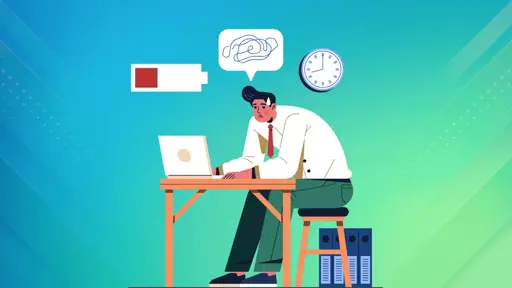- cross-posted to:
- selfhosted@lemmy.world
- linux@lemmy.ml
- cross-posted to:
- selfhosted@lemmy.world
- linux@lemmy.ml
The foundation of modern software is cracking under the weight of burnout.
My employer: we love open source software. Such a beautiful thing.
Me: you’ll allow us time to contribute then, right?
My employer: Aah, the beauty of untouchable things
Sharing this here as a lot of people already know how Ernest, the lead Kbin developer, got burned out by the project.
Treat maintainers like the humans they are, not free infrastructure.
Seems like a good reminder. Sometimes you see requests from users that are phrased as if the dev owes them something, rather than a request to another human being. It can be for a platform, a front-end, an app, an instance.
On the other hand, a lot of people seem to remember the human, it’s nice to see.
I’d say it’s a useful reminder for users and for developers alike.
For the users, make sure you throw a bit of money at open source projects you benefit from. I personally have a philosophy of spreading out recurring donations very thin: My liberapay is full of somewhat insignificant contributions. If even a relatively small share of people benefiting from open source software did the same we would be in a very different position. Currently 14 people support PieFed on LiberaPay, averaging at 0.8 USD per week. Personally I contribute by dragging down this average quite a bit. Do the same for projects you care about—think about how much you can give without it really affecting your financial status at all, and set up recurring donations of small amounts. Don’t stop yourself from giving just because you feel like you couldn’t contribute a meaningful amount: Organizations often stress that small recurring donations are as valuable if not more than larger one-time donations, as they value financial stability. Personally I cancelled my Dropbox subscription for a much cheaper one based on Nextcloud, and I save quite a bit of money every month that I’m trying to distribute to open source projects.
For developers, if money start trickling in, think about the project beyond yourself. Even if you’re doing great now and you enjoy maintaining it, things can happen, and you will in all likelihood burn out at some point. Don’t make the fact that you receive some financial support a stressful element that just adds to your burnout. Try to get other developers onboard, to set up structures so that you don’t feel bad for taking a break, and try to delegate responsibility. It probably feels like a waste of time that could be better spent coding—which is what you’re good at after all—but if your project has gotten to this point, it’s probably worth doing.
Yes. Sad thing is, if you google for “open source developers burnout” you’ll find people write pretty much this article twice a year for like 6 years now. I made up the numbers but it’s roughly that direction, maybe more.
I did. I stopped contributing to Open Source back in the 2000s when I saw that all of the dot com stuff was being built on unpaid opensource labor. Now I contribute (financially) to the products I use, and stopped contributing code, testing, or documentation elsewhere.





